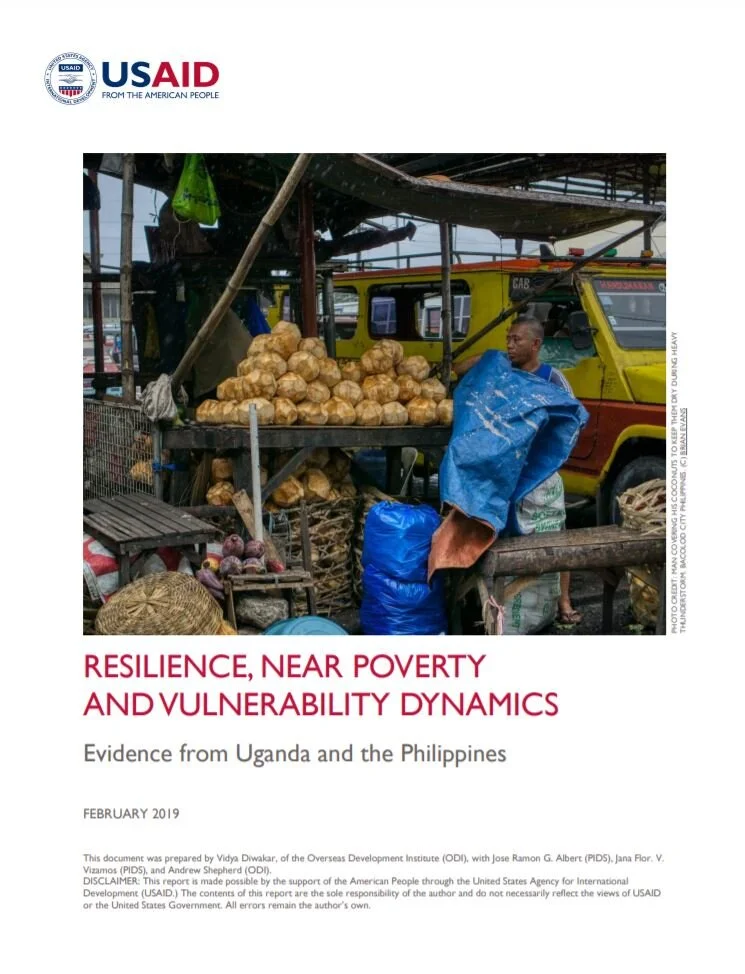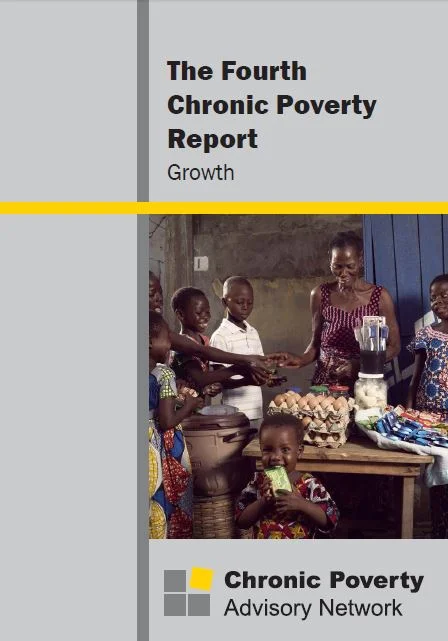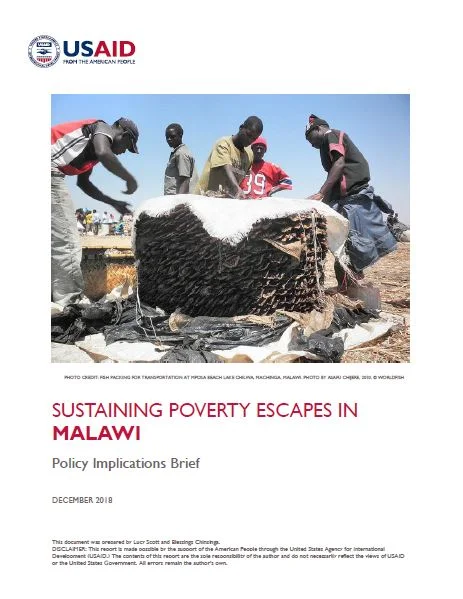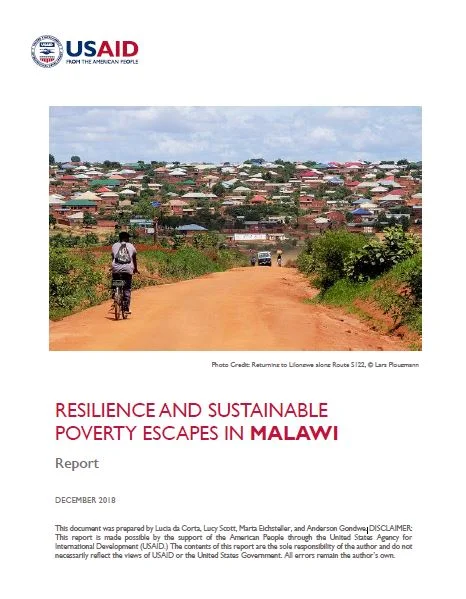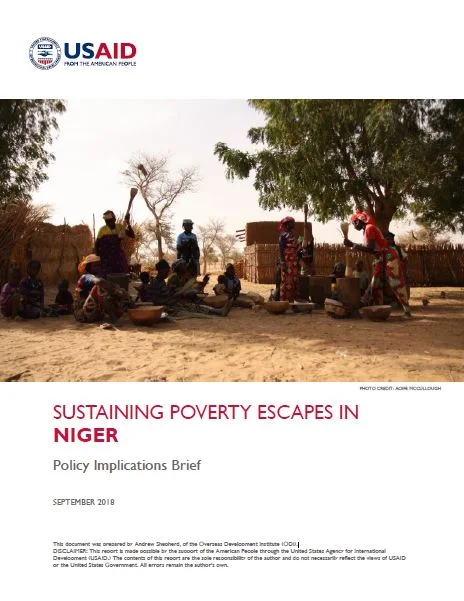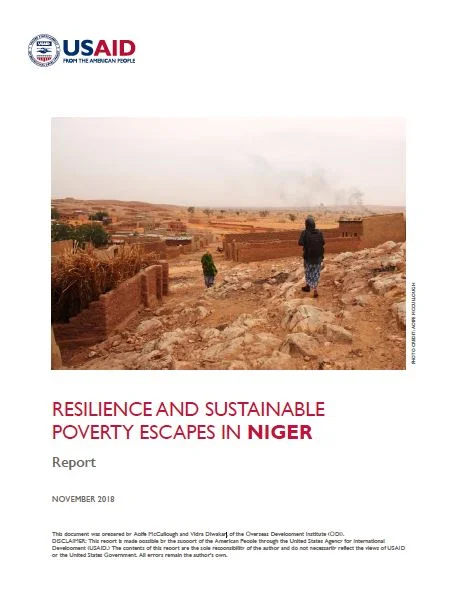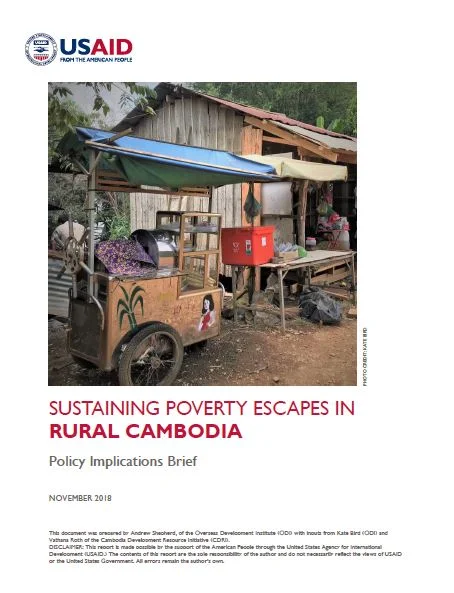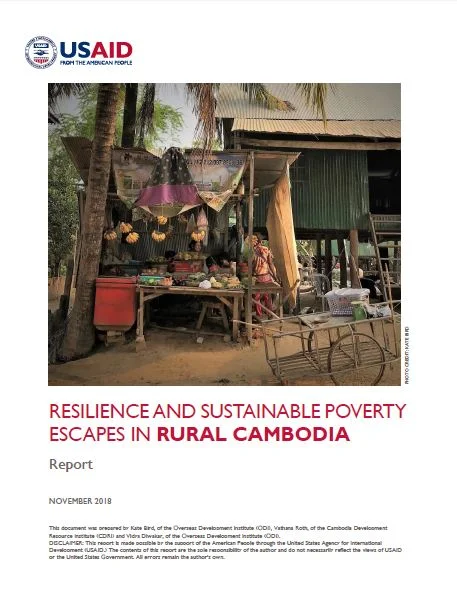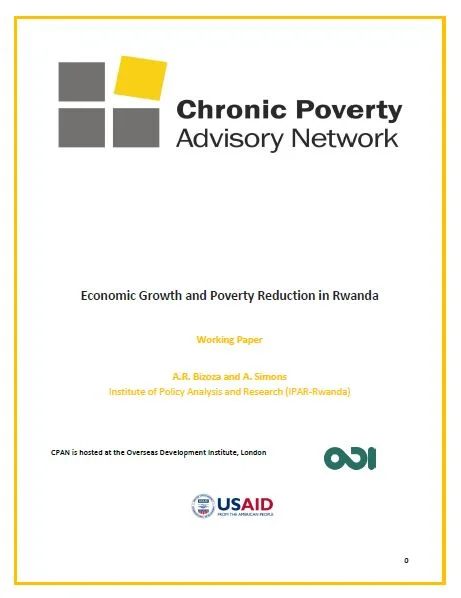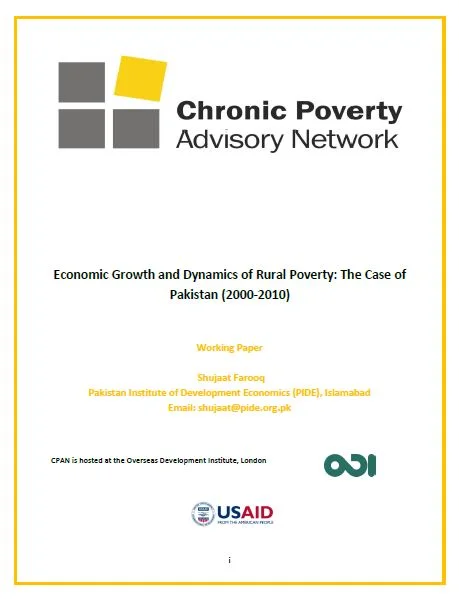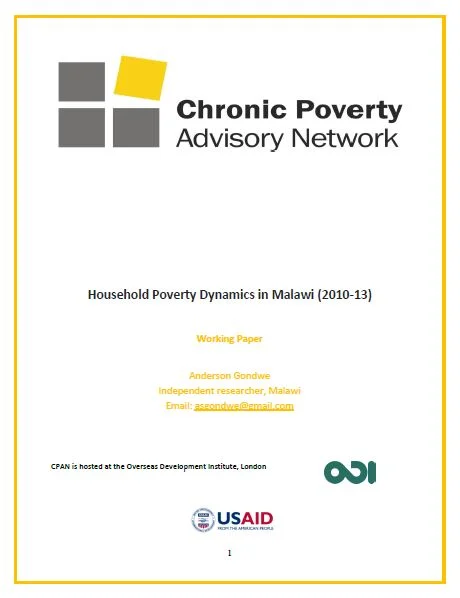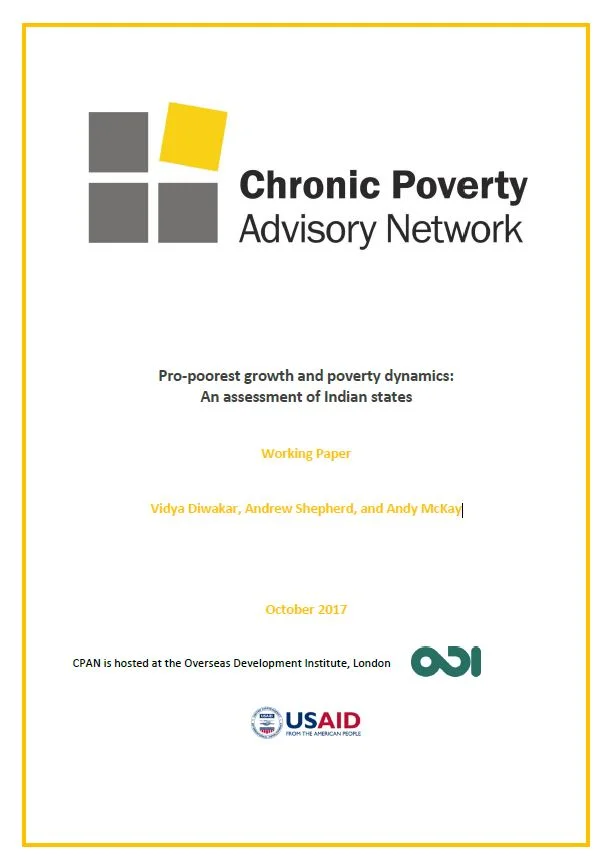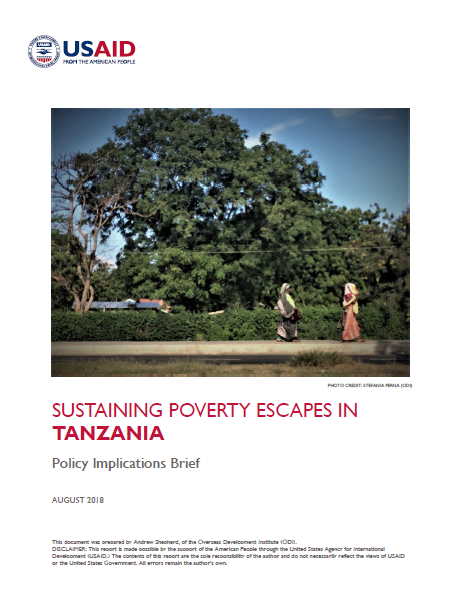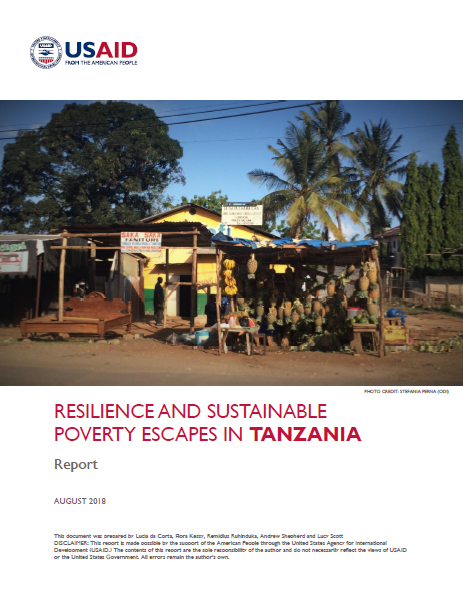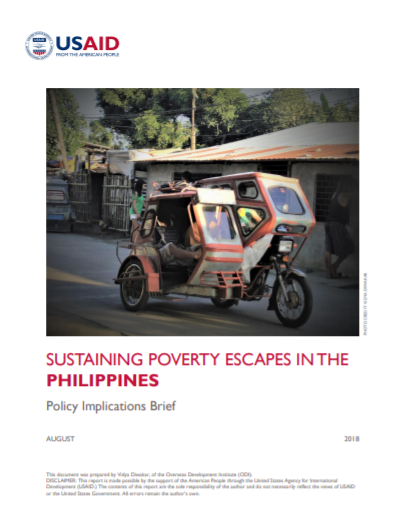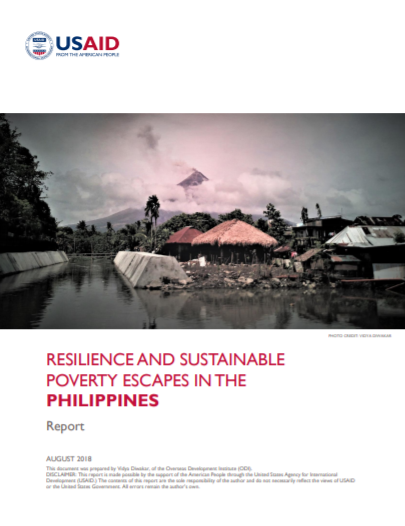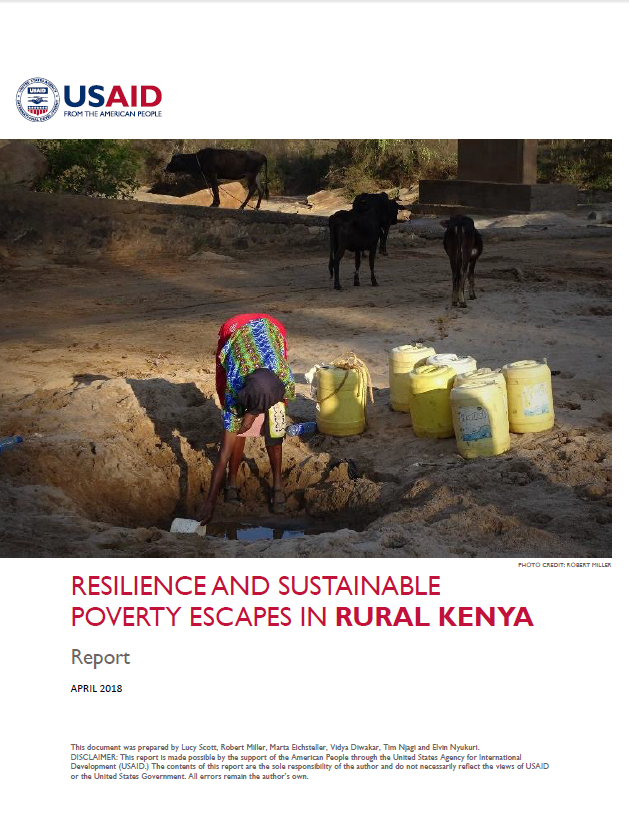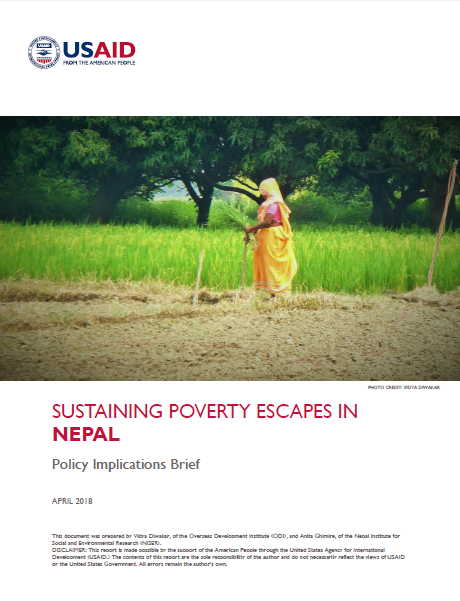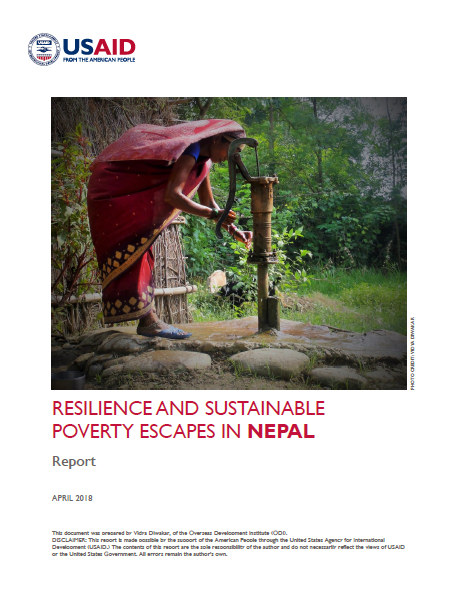Health intersects with resilience and sustained poverty escapes in at least three ways. Health problems can be a shock that reduces well-being temporarily or with longer term impoverishing effects. Health is also an important form of human capital that can act as a resilience capacity to protect individuals, households, and communities in the face of adversity. Finally, health outcomes are in and of themselves development outcomes that need to be sustained in the face of shocks and stresses.
The brief presents findings around health shocks and health as a resilience capacity, from a series of 11 country studies on drivers of poverty dynamics in both Africa (Tanzania, Rwanda, Niger, Malawi, Ethiopia, Uganda, rural Kenya) and Asia (Philippines, Nepal, rural Cambodia, rural Bangladesh). It also offers health-related policy and programming implications for building resilience capacities to contribute to sustained poverty reduction.
Authors: Vidya Diwakar and Andrew Shepherd
To download the synthesis click here.
